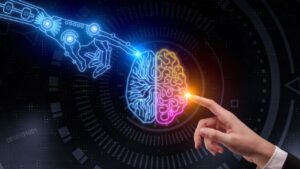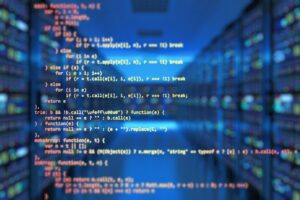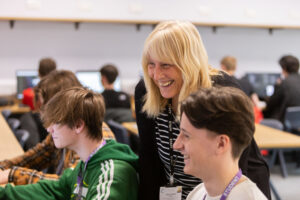There are close links between Computer Science, Mathematics and Physics, and students will study the underlying principles of solving problems using computation, understanding algorithms and computer code, how data is stored, how data is transmitted around networks and how hardware and software works.
Topics studied over the two-year linear course will include:
- Fundamentals of programming
- Data structures
- Algorithms
- Data representation
- Computer systems
- Computer organisation and architecture
- Communication and networking
- Functional programming
- Theory of computation
- Consequences of uses of computing
- Big Data and a systematic approach to problem solving.






